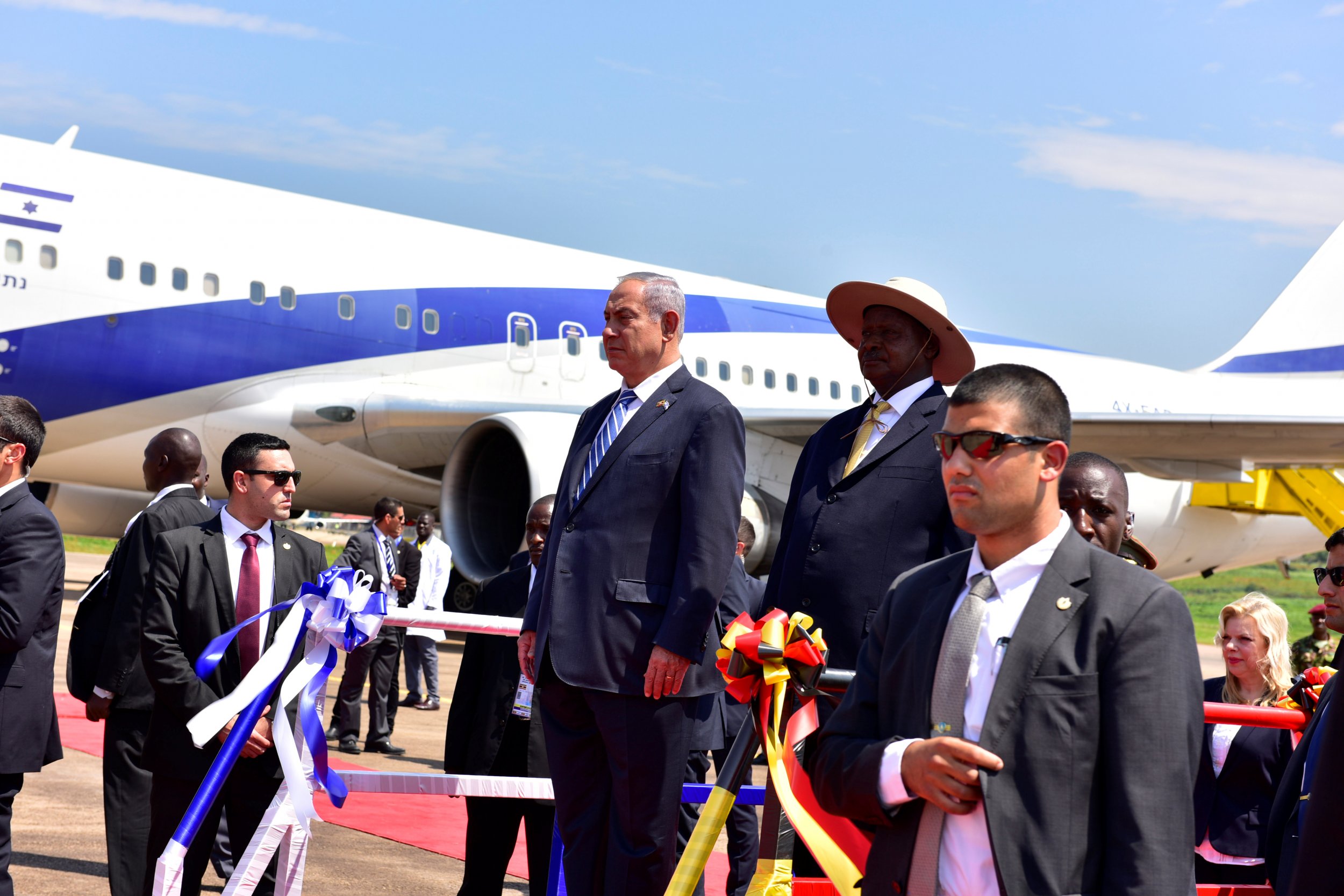
🎙️ Voice is AI-generated. Inconsistencies may occur.
When he touched down in Uganda on Monday, Benjamin Netanyahu became the first Israeli Prime Minister to visit sub-Saharan Africa in almost 30 years.
Netanyahu began a four-day tour that will encompass visits to Uganda, Kenya, Rwanda and Ethiopia, in what he has described as Israel's attempt to "return to Africa in a big way."
Here are five reasons why Netanyahu is coming to Africa.
1. To pay his respects
Jonathan Netanyahu, the elder brother of the Israeli leader, died in Entebbe in Central Uganda in 1976 during a hostage rescue operation. An Air France flight from Tel Aviv to Paris was hijacked by Palestinian and German militants, who ordered the pilot to divert to Benghazi in Libya and then Entebbe, where they were offered shelter by Ugandan dictator Idi Amin. The Israeli-led operation freed 102 of 106 hostages, who had been held for more than a week at the airport, but Netanyahu's brother was shot dead during the raid. Four hostages, at least seven of the militants and 20 Ugandan troops were also killed.
Visiting the scene of the raid on Monday, Netanyahu said he had learned from his brother that "clarity and courage" are required to overcome extremism. "When terrorism succeeds in one place it spreads to other places, and when terrorism is defeated anywhere it is weakened everywhere. This is why Entebbe...was a victory for all humanity," said the Israeli PM, according to the BBC.
2. To restore shaky foundations
The fact that no Israeli head of state has visited sub-Saharan Africa since Yitzhak Shamir in 1987 is testament to the rocky history between Israel and the continent. Following the 1973 war between Israel and a coalition of Arab states led by Egypt and Syria, scores of African countries—many under Arab influence—cut ties with Israel. Indeed, the four countries Netanyahu is visiting all severed relations with Israel following the war, only to restore them in the 1990s. The country's ties with black African countries have also suffered due to its historic support for the apartheid regime in South Africa.
Netanyahu admits that his visit is an attempt to restore these relations. "Israel was blacklisted in Africa, basically kicked out by political pressure from many, many countries in which we were involved in the 60s and 70s and it took a while to change," said Netanyahu in an interview with Ugandan independent newspaper the Daily Monitor.
3. To do business and get some favors
Netanyahu will lead at least two business forums during his trip, one in Kenya and one in Ethiopia, while also meeting with each head of state individually. Israel is also expected to launch a $13 million development package for African states, which will including assistance in the sectors of agriculture, health and domestic security.
Israel has also reached a settlement with two undisclosed African countries to resettle around 40,000 migrants and refugees from Sudan and Eritrea, who entered the country through Egypt. The countries are reported to be Uganda and Rwanda, according to the Financial Times.
4. To gain some partners against the West
The continuing stalemate in the Israel-Palestine conflict has proved detrimental to the former's relations with Western countries and institutions such as the United Nations, which have condemned Israel's construction of settlements in the West Bank and the blockade of the Gaza Strip . One possible motivation of Netanyahu's trip is to drum up support within the region for Israel's stance on the issue. "In the U.N. there are many [resolutions] which target Israel and we want to change this with the help of the Africans," Arye Oded, a former Israeli ambassador to Kenya and Uganda, told German broadcaster DW.
5. To share past grievances
One particularly poignant stop on Netanyahu's agenda is a visit to the Kigali Genocide Memorial, where the remains of more than 250,000 victims of the Rwandan genocide are interred. The 1994 genocide saw Hutu extremists kill more than 800,000 Tutsis and moderate Hutus in a systematic attempt to exterminate an entire ethnic group. Since some 6 million Jews were killed by the Nazi Germany regime during World War II, Netanyahu will no doubt be able to empathize with those affected by the genocide. Rwanda's ambassador to Israel, Joseph Rutabana, has previously said that the East African country holds up Israel as a template of how to recover from a tragedy on such a scale.